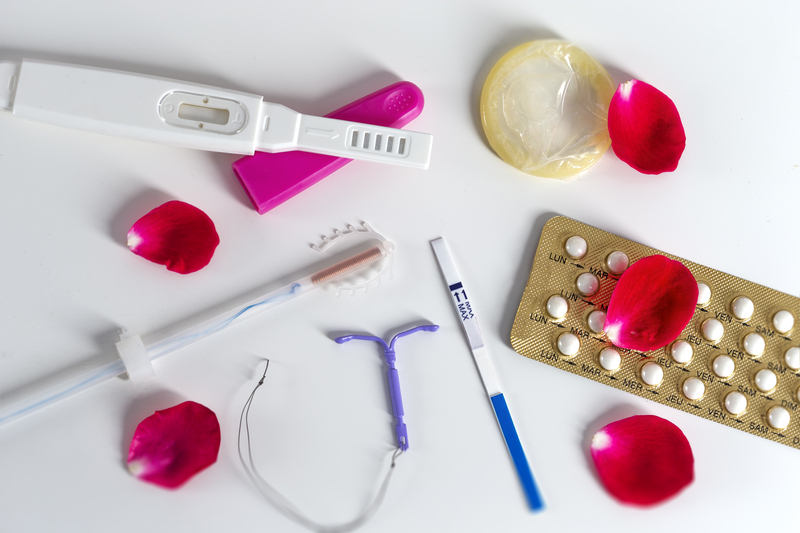Intrauterine devices (IUDs) and birth control pills are two of the most popular birth control methods for women. Both methods are highly effective contraceptives.
They work similarly. Birth control products deliver hormones to your body that help prevent pregnancy. By preventing ovulation IUDs cause the uterine lining to thin, and cause the cervical mucus to thicken. These effects help prevent sperm from fertilizing an egg and prevent an egg from implanting in the uterus.
There are several women’s health factors to consider when deciding on which forms of birth control might be right for you. No one option is better than the other. It all depends on your lifestyle and your unique medical situation.
It is best to make an appointment to talk to your primary care doctor or gynecologist for medical advice on your reproductive health, but here is some information to help you start thinking about whether an IUD or birth control pills might be the right choice for you.
Which is better IUD or birth control pills?
Both the IUD and birth control pills are highly effective birth control options.
When taken perfectly at the same time every day, birth control pills are about 99% effective at preventing pregnancy. However, with average or “imperfect” use, birth control pills are closer to 91% effective. Both hormonal and copper IUDs are close to 100% effective at preventing unwanted pregnancy.If you are someone who can be responsible to take a pill at the same time every day, birth control pills might work well for you. If you do not want the responsibility or cannot take a pill each day, an IUD might be a better method for you because it can last for years after IUD insertion is performed by a doctor.
Both methods can help regulate your menstrual cycle, lighten period flow, reduce painful cramping, and help manage the symptoms of conditions such as endometriosis.
Negative side effects are rare, but they are possible. Birth control pills can increase your risk of blood clots. This risk is lower with pills with low doses of estrogen. Birth control pills might not be safe for people with high blood pressure.
IUDs do not increase your risk of blood clots or complications from high blood pressure because they do not contain estrogen.
Neither of these contraceptive methods protects against sexually transmitted diseases (STDs), so a secondary barrier method of contraception, such as condoms, should always be used to prevent the spread of disease.
Do IUDs have less hormones than the pill?
There are two main types of IUDs: hormonal IUDs and copper IUDs.
Copper IUDs do not contain any hormones, and therefore are a non-hormonal method of birth control. The most common copper IUD is called Paragard. Once inserted by an Ob/GYN, copper IUDs can be effective for up to 10–12 years.
Hormonal IUDs are a type of hormonal birth control. They are a long-acting form of birth control that slowly releases low levels of the hormone progestin or levonorgestrel. There are several options for hormonal IUDs, including Mirena, Skyla, Kyleena, and Liletta. Once inserted by an Ob/GYN, each IUD option lasts for 3–7 years, depending on which one you choose.
Combination pills usually contain a combination of low levels of estrogen and progesterone. The minipill only contains progesterone. There are many options for birth control pills. Some pills have higher doses of hormones while others have extremely low levels of hormones. Different levels of hormones will work better for different people and their unique medical situations.
The hormones from IUDs are delivered locally to the uterus and cervix, so there may be fewer side effects. The hormones from oral contraceptives are distributed in the bloodstream throughout the body so there is an increased risk of side effects from the hormones.
Is the IUD the safest form of birth control?
IUDs are one of the most effective birth control methods for preventing pregnancy. They are almost 100% effective in most cases. One of the reasons that they are so effective is because they are implanted by a doctor and then you are set for several years. No need to remember to take a pill every day!
Other forms of birth control, such as the pill, vaginal rings, birth control patches, implants or condoms rely more on perfect use to be effective.
So, if you are solely concerned about preventing unwanted pregnancy, IUDs might be considered the most effective birth control option for you. If you are concerned about the potential side effects of starting hormonal birth control, you should discuss your concerns with your doctor. Using a barrier method, such as condoms, diaphragms, or cervical caps with spermicide is recommended in the meantime. These methods are not as effective as IUDs or birth control pills at preventing pregnancy, but they are generally effective when used as directed. Barrier methods can prevent unwanted pregnancy without delivering any hormones to the body. They also protect against STDs.
Talk to your doctor today
At Great City Medical in NYC, we have a team of Ob/GYNs who are ready to discuss your birth control options and figure out which is best for you. Call us to make an appointment today!



